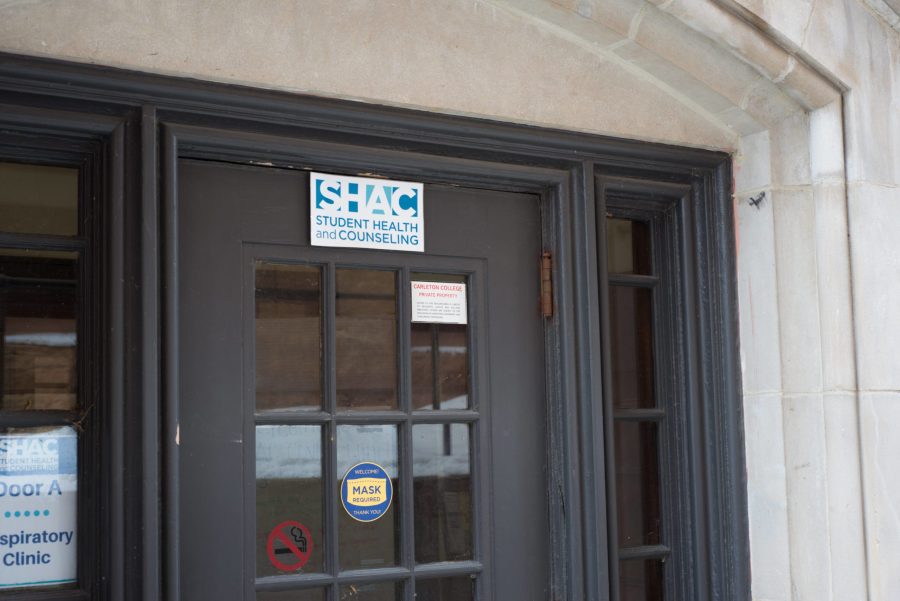The state of Minnesota has approved Carleton as a COVID-19 vaccination site, according to Dean of Students Carolyn Livingston’s February 3 pandemic update email. In the email, Livingston explained that “at this time, we don’t know when we might receive the vaccine or how many doses will be distributed to us.” She promised to share details “as soon as we have more information.”
The Carletonian requested further information regarding what this vaccination site approval means for the college, to which Livingston responded, “It means we will be able to administer vaccines to Carleton community members when the vaccines are made available to us.”
According to Carleton Student Association (CSA) Senate meeting minutes from January 25, the college has requested 7,000 doses. Both the Pfizer and Moderna COVID-19 vaccines—the only ones approved so far in the United States—require two doses, and Livingston explained that 7,000 doses would provide “two doses for each member of the total Carleton community—faculty, staff, students and contractors.”
The minutes also implied that the College may “vaccinate families if there are leftovers,” though it is not clear whether this possibility refers to families of faculty and staff or general Northfield residents.
Livingston indicated that the college is likely to receive the Moderna vaccine, because “we don’t have the refrigeration requirements for Pfizer,” which requires storage in an ultra-cold freezer between -112°F and -76°F. Carleton will receive the vaccines free of charge from the state.
The timeline of vaccine availability in Minnesota has not been fully disclosed by the Minnesota Department of Health, but before the requested doses arrive, the college will need to determine who will receive the vaccine first. When asked about vaccination priority groups, Livingston told the Carletonian: “We will follow the Minnesota Department of Health (MDH) to determine who is vaccinated first,” and referenced their “COVID-19 Vaccine Phases and Planning” page.
As of yet, however, the MDH has provided little information on the upcoming phases of vaccine distribution, and the posted information is self-contradictory. The MDH website states that Minnesota is currently in Phase 1a of distribution, which “includes health care personnel and long-term care residents.” The next phase, Phase 1b, remains undefined, with MDH promising that “details on who will be included in phase 1b will be available in coming weeks.”
On another page on the website, MDH states that Minnesota “has slowly started to move into Phase 1b,” and expands eligibility to Minnesotans age 65 or older as well as “Pre-kindergarten through Adult Basic and Community Education school staff members” and “contracted school staff members [or] Child care staff members at a licensed and certified child care center or program.”
On a third webpage, which was last updated on December 22, 2020 but is still posted on the MDH site, an official MDH infographic specifies that 1a includes only health-care personnel and long-term care residents; 1b includes adults age 75 or older; and 1c extends to adults age 65–74, people age 16–64 “with high-risk medical conditions” and “other essential workers.”
Livingston elaborated, “We do have a working group reviewing who falls within those identified priority groups.” The Carletonian has not received a reply to follow-up questions about which “priority groups” she was referring to.
According to the College’s COVID-19 website, the MDH Workgroup on Addressing the Needs of Students and Staff Who Are in High-Risk Groups is composed solely of the Student Health and Counseling Coordinator of Medical Services, Natalee Johnson.
While the college established a mandatory influenza vaccination requirement for on-campus community members this fall, Livingston said of the COVID-19 vaccine that it “cannot be required at this time due to its emergency use authorization,” but that “we strongly encourage all members of our community to be vaccinated for COVID-19 when a vaccine becomes available to them.”
The Carletonian has not found outside confirmation that the vaccine’s emergency use authorization prohibits the college from mandating it.
According to a February 3, 2021 CNBC article, attorney Renee Mattei Myers confirmed that “colleges and universities are legally able to require students to get the coronavirus vaccine under the most-recent guidance.”
She was also quoted saying,“Under everything that we’ve seen, and the guidance from agencies like the Equal Employment Opportunity Commission and the Department of Education, it’s been stated that just like how [colleges] can require other vaccines like meningitis and measles and hepatitis for incoming students, that they could require this vaccine as well.”
In the same article, Kevin Welner, a professor at the University of Colorado Boulder School of Education, agreed: “Colleges and universities do routinely require vaccines, such as rubella, meningitis and chicken pox. I don’t see why the Covid-19 vaccine wouldn’t be put within that same category.”
Welner noted, however, that “‘require’ is probably not the right word because obviously the student doesn’t have to attend the school and there are also waivers or exemptions that students can get.” A recent survey of 1,000 college students by College Pulse found that 71% of students believe that colleges have a right to require students to receive vaccinations.










